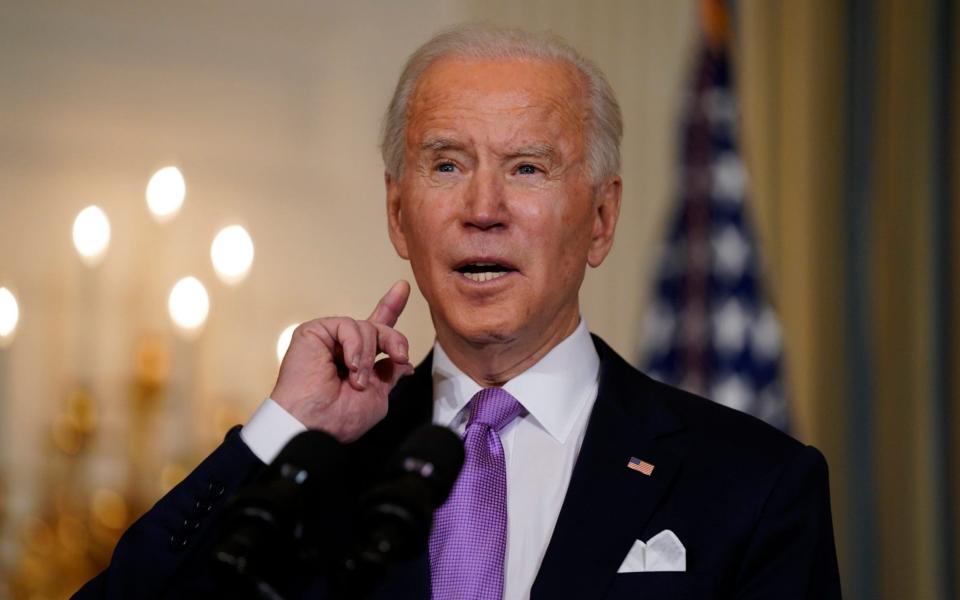Trump-appointed judges could slow down the Biden revolution

Donald Trump may be out of office, but his legacy is likely to throw a spanner in the works for the Biden revolution.
The Democrats control the White House, the House of Representatives and, with the aid of Kamala Harris’s casting vote, the Senate.
But it took less than a week for a Trump-appointed judge to slam the brakes on a Biden immigration initiative.
US District Judge Drew Tipton issued a restraining order preventing the new administration from enforcing a 100-day moratorium on deportations.
His ruling was a foretaste of what is to come over the next few years.
Immigration, of course, is one of the biggest areas of contention between the parties.
While Donald Trump was in power, the Democrats repeatedly – and often successfully - went to court to block immigration restrictions.
Think back to the ban on immigration from seven Muslim-majority countries. It was repeatedly knocked back by the courts.
It had to be rewritten time and time again before finally getting approved by the Supreme Court.
It is hardly surprising that the Republicans will use the courts to delay – and if possible block - the Biden administration where it can.
Drew Tipton is one of around 230 judges appointed to the federal bench by Mr Trump, with the aid of Mitch McConnell, the Republican senate leader.
Some are in their 30s, which means they will be in place for decades.
“The courts are more conservative at the end of the Trump administration than they were four years ago,” says Jonathan Adler, a law professor at Case Western Reserve University School of Law in Cleveland.
It is also hardly surprising that Texas was chosen for the first legal challenge.
“During the Trump presidency, people would sue in California or New York to challenge the administration. Now we are likely to see cases brought in Texas.
“There will be a temptation to take suits before a judge where you think you will get a favourable ruling. But in some cases, the judge could be an outlier and the decision will not be upheld on appeal.
“It is more likely to slow things down than bring them to a halt.
“But there are areas which are vulnerable. Some of the measures on climate change and immigration are legally risky.”
Mr Biden’s decision to make his mark on the Oval Office with a blizzard of executive orders could backfire in the courts, explains Chris Galdieri, associate professor of politics at Saint Anselm College.
“Generally, one of the few policy successes of the Trump era was to move the courts in a much more conservative direction.
“One of the things the Biden administration will have to grapple with is the potential for these sort of rulings, especially for anything done via executive action rather than through congressional legislation.
“I think it is more likely to slow things down. On immigration, the executive branch has a lot of leeway and Biden is in charge of the agencies enforcing immigration policy,” he adds.
“So this ruling is more likely to be a bump in the road rather than a roadblock.
“There are Democrats who are arguing Biden can do on climate what Trump did with his wall - declare a federal emergency and move money around to support it.
“The Supreme Court could say that is not what is meant by an emergency. But this will depend on how aggressive these judges are prepared to be.”

 Yahoo News
Yahoo News 